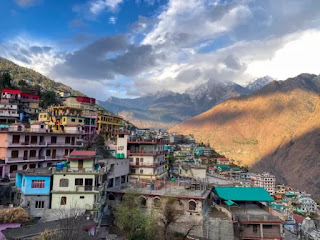 |
| Joshimath |
Joshimath, a small town in the Indian state of Uttarakhand, was struck by a devastating disaster a month ago. The town, which is located in the foothills of the Himalayas, was hit by flash floods and landslides, causing widespread damage to property and infrastructure. Unfortunately, a month later, the residents of Joshimath are still struggling to get back on their feet, as rehabilitation efforts have been slow to get off the ground.
The Extent of the Damage
The extent of the damage caused by the flash floods and landslides was massive. Homes and businesses were destroyed, roads were blocked, and bridges were washed away. The town's water supply was also severely impacted, making it difficult for residents to access clean water. The disaster has left the town in a state of chaos, with residents struggling to find shelter, food, and medical care.
The Challenges Facing Rehabilitation Efforts
Rehabilitation efforts have been slow to get off the ground, due to a number of challenges. First and foremost, the terrain of the area makes it difficult for relief and reconstruction teams to access the affected areas. The remote location of the town and the rugged terrain make it difficult for heavy equipment and materials to reach the area. Additionally, the monsoon season has made it difficult for relief teams to work, as they are often forced to halt their operations due to heavy rainfall.
Another challenge facing rehabilitation efforts is the lack of resources and funding. The Indian government has promised to provide aid to the affected areas, but the amount of aid has been limited, and it has been slow to reach the town. Non-profit organizations and international aid agencies have also been slow to respond, due to the remote location of the town and the lack of resources available.
The Impact on Residents
The disaster and the slow pace of rehabilitation efforts have had a profound impact on the residents of Joshimath. Many residents have lost their homes and livelihoods, and are now struggling to find shelter and food. The lack of access to clean water has also led to an increase in water-borne diseases, such as dysentery and cholera. The town's healthcare system has also been overwhelmed, with hospitals and clinics struggling to keep up with the demand for medical care.
A Call to Action
The residents of Joshimath need our help. The slow pace of rehabilitation efforts and the limited resources available have left them in a state of desperation. It is our responsibility as global citizens to respond to their needs and help them get back on their feet. We can do this by making donations to non-profit organizations and international aid agencies, who are working to provide relief to the affected areas. We can also advocate for more resources and funding to be directed towards the rehabilitation efforts in Joshimath.
Conclusion
A month after the disaster, the residents of Joshimath are still struggling to get back on their feet. The extent of the damage caused by the flash floods and landslides was massive, and the challenges facing rehabilitation efforts have been significant. The residents of Joshimath need our help, and it is our responsibility as global citizens to respond to their needs. By making donations and advocating for more resources, we can help the residents of Joshimath get back on their feet and rebuild their lives.
